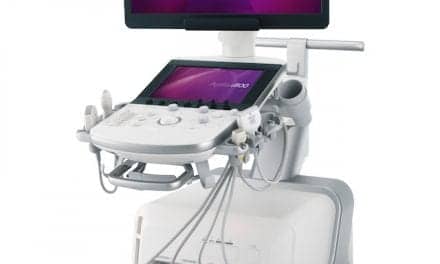Avenu Medical, Inc., San Juan Capistrano, Calif., has received De Novo marketing authorization from the U.S. FDA to market its Ellipsys Vascular Access System, an innovative, minimally-invasive, ultrasound-guided, catheter-based system designed for patients with end-stage renal disease (ESRD) requiring hemodialysis.
FDA’s action will provide U.S. physicians and patients access to a unique non-surgical option for arteriovenous (AV) fistula creation, a procedure that has not changed in more than 50 years, according to the company.
Since 1966, the AV fistula has been created by surgeons in an operating room by sewing a vein and an artery together, usually in the arm. When this is done, blood from the artery will pass through the vein increasing its flow rate and diameter. This makes the vein suitable for the insertion of the needles required for hemodialysis treatment. An AV fistula is the preferred method for vascular access as there is evidence of longer-term patency, improved flow rates and fewer complications than other methods of vascular access.
A game-changing innovation for dialysis patients and clinicians, Avenu’s endoAVF technology, Ellipsys is a less-invasive alternative to the traditional creation of AV fistulas and is designed to be used by a physician under local or regional anesthesia in all sites of service including hospital outpatient departments, ambulatory surgical centers and physician offices.
Ultrasound is used to guide the Ellipsys catheter through the skin to the pre-determined vascular target. The catheter delivers a small amount of thermal energy that fuses a sutureless and permanent anastomosis, or connection, between the vein and artery allowing the creation of an AVF.
Unlike surgery, the Ellipsys System uses a minimally invasive, endovascular approach that leaves the skin without a scar, and the vascular bed undisturbed and intact without leaving any foreign material implanted (including suture). After the procedure, the patient leaves with just a band-aid.
“Good vascular access makes a tremendous difference in patient outcomes,” says longtime kidney patient advocate, Terry Litchfield. “This revolutionary non-surgical fistula creation can reduce the pain and suffering associated with traditional fistula surgery, lessen failed surgeries and reduce catheter time for patients.”
Clearance for the ultrasound-guided catheter was granted after FDA reviewed data from a non-randomized, U.S. multi-center study of 103 patients. The study was designed to demonstrate the safety and efficacy of the Ellipsys System for the percutaneous creation of an AV fistula.
“This approval marks a seismic shift for the patients and physicians within the ESRD community. We can now offer a faster, more efficient and less-invasive option for patients requiring vascular access here in the US and worldwide” says Mark Ritchart, president of Avenu Medical.
“For too long, there has been a shortage of dedicated vascular surgeons who can create AV fistulas leading to delays in performing the surgery and requiring expensive, temporary catheter access,” Ritchart adds. “Our Ellipsys System has the potential to significantly increase the number of clinicians performing vascular access procedures, thereby reducing these delays. This, in turn, will result in reduced morbidity and the cost associated with temporary catheter access. In short, it represents a quality of life improvement opportunity for this patient community.”
“Using the Ellipsys Vascular Access System is very similar to common procedures such as obtaining venous and arterial access with ultrasound,” notes Jeffrey E. Hull, MD, Director of the Richmond Vascular Center in Richmond, VA. “Most physicians involved in vascular access have the endovascular skills required and will learn to use the Ellipsys System quickly.”
For more information, visit Avenu Medical.






